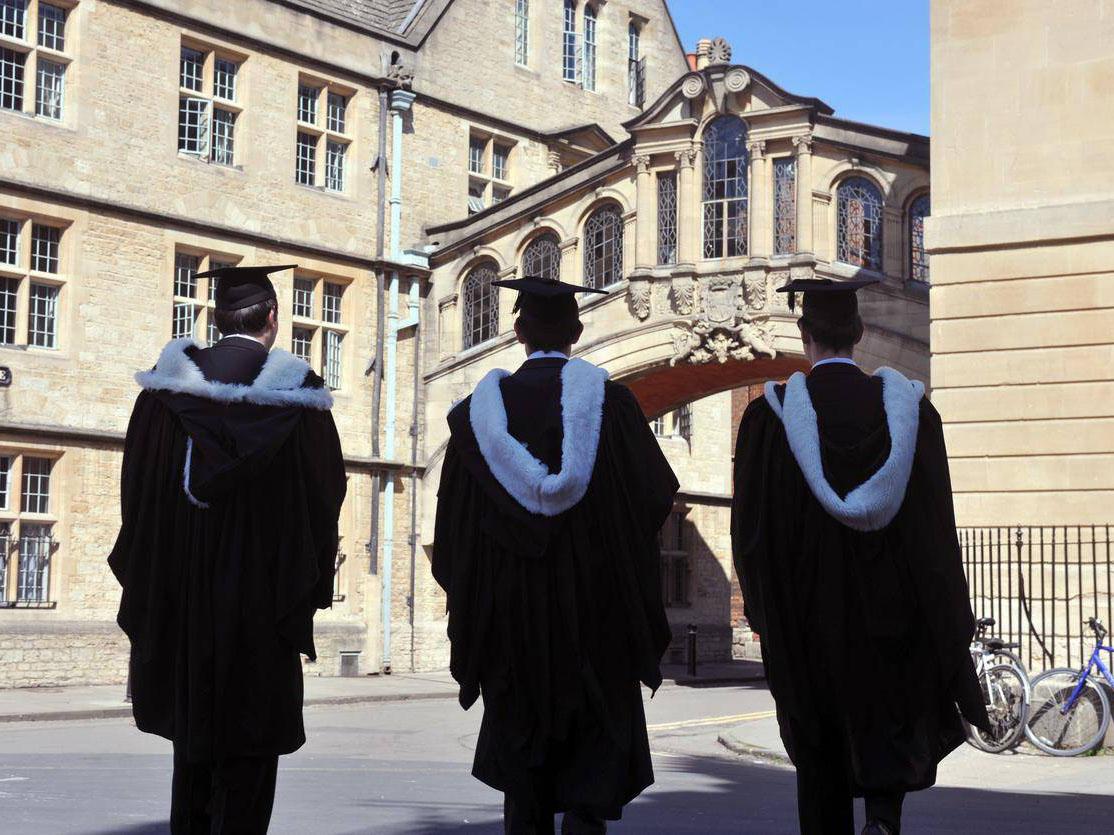Universities make 'misleading' marketing claims to students, report suggests
‘More universities may do this to boost chances of acquiring more students and money’

A number of universities have made potentially misleading marketing claims about their international status, an investigation has found.
At least six universities have made unverifiable claims about their rankings on their websites – making it harder for students to make informed choices, consumer group Which? University has said.
The investigation comes less than a year after the advertising watchdog – Advertising Standards Authority (ASA) – launched a crackdown on universities misleading students with false claims.
The latest investigation found that Newcastle University, a member of the Russell Group – often considered among the best 24 institutions in UK – said it was in the top 1 per cent in the QS World University Rankings.
But it came 141st in the current table – putting it in the top 15 per cent of ranked institutions, Which? has said.
The consumer group says there were a number of other unjustified claims that were not clearly verifiable – including:
- Aston University said it was “ranked within the top 35 universities in all university ranking tables”.
- University of Aberdeen claimed to be “ranked consistently among the world’s top universities” on its website.
- Edinburgh’s Heriot-Watt University described itself as “one of the world’s leading universities for pioneering research informed by the needs of business and industry”.
- University of the West of Scotland claimed that it “ranked in the top 3 per cent of universities worldwide”.
- Ulster University stated that it “is in the top 3 per cent of universities in the world”.
Alex Hayman, managing director of Which? University, said: “It is critical that prospective students can trust the facts that higher education institutions are putting forward. However, we’ve found numerous examples of universities falling short.
“We want universities to act responsibly in line with the ASA’s guidelines as thousands across the country prepare to apply for the next step of their education in the coming weeks and months.”
It comes as universities have been competing to attract students amid a fall in applications, which has been fuelled by a decline in the UK’s 18-year-old population and uncapped student numbers.
In November last year, the ASA issued advice to universities about how they should make sure their claims are verifiable to ensure that prospective students are not misled.
Shakira Martin, president of the National Union of Students, said: “For too long some institutions have used misleading ranking statistics or conjecture on outcomes such as graduate earnings. Universities have a duty to provide a truthful and accurate picture of what they provide and only make claims they can actually back up.
“The marketisation of higher education and the competitive marketplace that has now taken hold of our sector means that more and more universities may begin to turn to unverifiable claims to boost their chances of the acquiring higher number of students and ultimately more money year on year.”
Nicola Dandridge, chief executive of the higher education regulator Office for Students, said the investigation highlighted the need for “honest, impartial information” for students.
“It is essential that universities ensure that their marketing material is accurate, otherwise students will be misled,” she said.
“University marketing departments must take this issue seriously, taking into account recent guidance from the Advertising Standards Authority.
“Above all, it is crucial that students have access to honest, impartial information and advice to help them to decide where and what to study.”
Aston University said it recognised that there was an “oversight” in not providing a source online – but it insisted that it is ranked within the top 35 universities in all ranking tables for employability.
A Newcastle University spokesperson said the statement related to a pdf from 2015 that was left on their website “in error during an ongoing revamp”. It has since been removed.
The University of Aberdeen said it will enhance its website to provide clearer information – but it insisted that the description of being a top university was not misleading.
Meanwhile, Heriot-Watt University stood by its claim, saying it was evidenced on its website by the Research Excellence Framework where 82 per cent of their research was assessed as world-leading.
And the University of the West of Scotland insisted that it appropriately referenced the Times Higher Education World University 2018 rankings as the source of the statement.
On the new investigation from Which?, an ASA spokesperson said: “We will carefully consider the findings of the report before deciding if any further action is necessary.”
Join our commenting forum
Join thought-provoking conversations, follow other Independent readers and see their replies
Comments
Bookmark popover
Removed from bookmarks